We are excited to share another list of book recommendations from one of our own. Creative Fellow Cory Cathcart, who is an editor and writer at PATTERN, shared her favorite reads of her life so far. Most of these tap into her love for the observation necessary to be a writer. Cathcart reads not only for pleasure, but to learn and soak in the different styles of writers she admires. Read about her favorites below and see what she’s been writing about for PATTERN here.
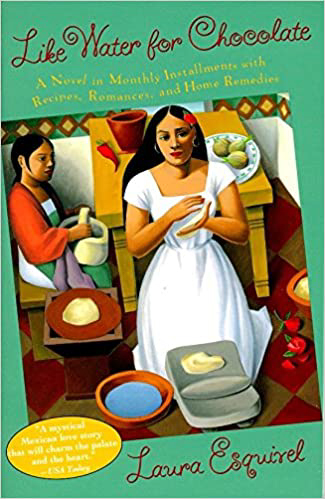
Like Water For Chocolate
Laura Esquivel
I got this book at a book swap event that Indy Maven hosted at the Kurt Vonnegut Museum and Library. We each left little notes in the front of the books. The note in this one said, “The characters have stuck with me long after I read this book.” I chose it based on that note and I read it in a few days. It’s magical realism, which I am discovering I love. I’m excited to explore more from this genre, so if anyone reading this has some recommendations comment below or hit me up! It’s a novel set up as a timeline that is based on different recipes. I love to cook, I love to read, and I love magical stuff. It was great.
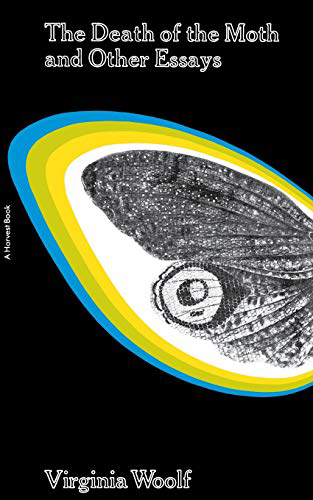
The Death of the Moth and Other Essays
Virginia Woolf
I first read “The Death of the Moth” a few years ago. It’s a pretty short essay that tackles the abstract concept of death. Whenever I am feeling depressed or numb I turn to this essay. Sometimes the best person to turn to for help is someone who has been dead for a long while. This is the greatest thing about writing to me. I feel understood when I read that essay. There’s no bullshit. I cry every time I read it–it’s really therapeutic. I’ve read it quite a bit, and even though it is short I discover something new every time. Woolf’s writing is like that though. I am addicted to her sentence structure. In my writing I aim for clear and concise–that’s usually what I like to read–but Woolf changed all of that for me and helped me appreciate breaking the rules.

The Sun Also Rises
Ernest Hemingway
Reading this book was the first time I discovered the pleasure of reading Hemingway. Whatever his personal life was like, there’s no denying he wrote well about it. The Sun Also Rises, for me, was exciting to finish because I basically had no idea what the book was about. The simplicity confused me; I was thinking about it too hard. My friend Rebekah, who recommended it to me, said, “It’s about privilege.” I adored the simplicity of the writing and how connected you feel to the characters. I randomly think about that book all the time.

Slouching Towards Bethlehem
Joan Didion
I first dug into these essays a few years ago. I had never heard of Joan before, and now she is one of my favorite writers. At first, her writing was a bit difficult for me to read. I got used to it, and now it’s extremely comforting to me. She’s another observer, I guess all writers are though, which is why I love to read and write. The title essay is about her observations of the hippie scene in San Francisco in the sixties. I love that she doesn’t romanticize or criticize them, she just tells what she sees so poetically and straightforwardly. Her personal essays are wonderful as well. “On Going Home” is my favorite.

A Tree Grows in Brooklyn
Betty Smith
I found this book recommendation on the r/suggestmeabook subreddit. It’s a coming-of-age story about all the observations of a young girl becoming an adult in turn of the century Brooklyn. Francie, the main character, is a visceral observer. She sees things clearly, but wonders why. I am fairly obsessed with late 19th/early 20th century life, so this book is one of my favorites. It was actually written as an autobiography originally. Smith’s editor or publisher, I can’t remember which, told her it would do much better as fiction which I think says a lot about us as readers. It’s an incredible book and paints such a beautiful picture of the difficulties of being a lower class child and dealing with life.
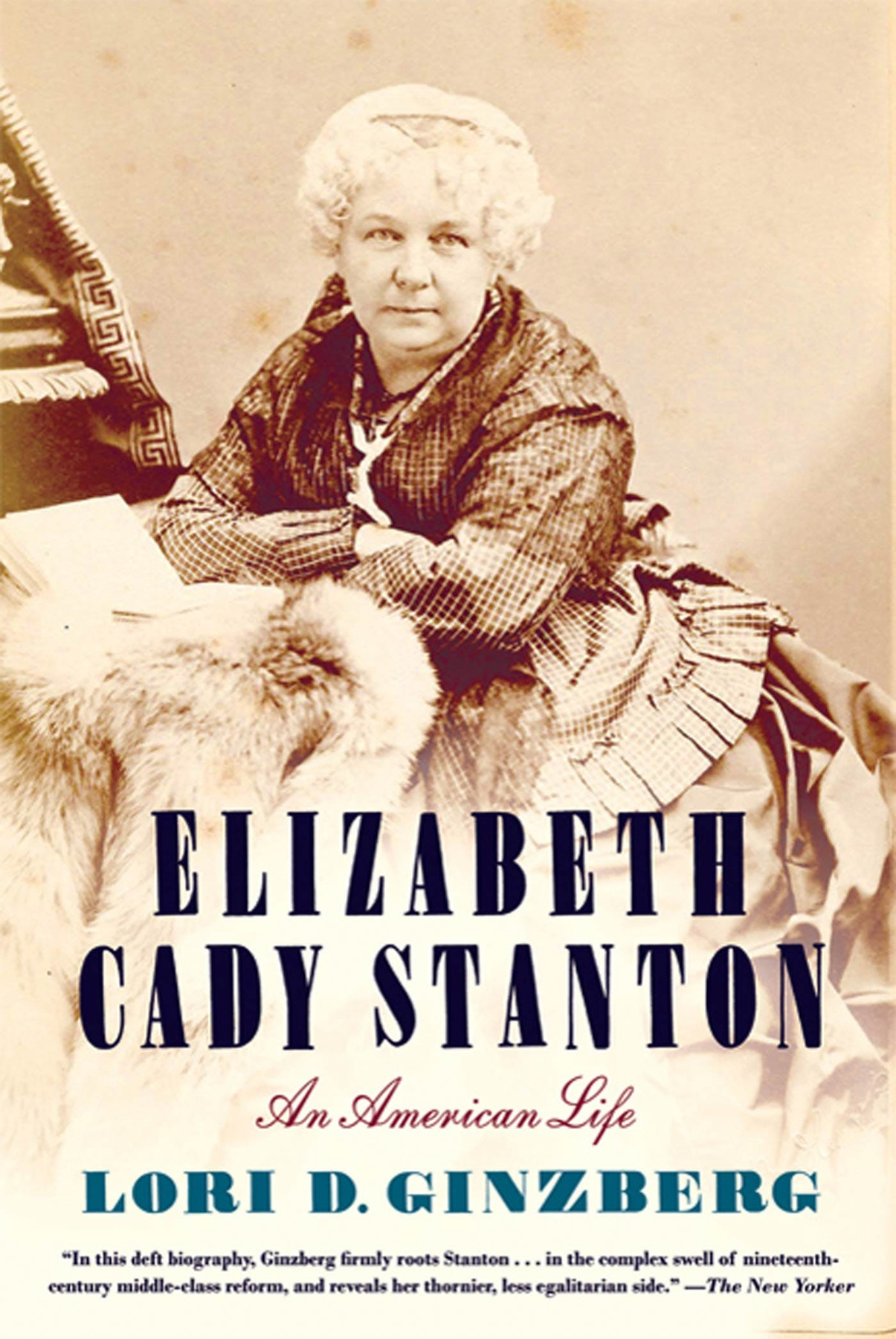
Elizabeth Cady Stanton: An American Life
Lori D. Ginzberg
This one may seem boring, but honestly it changed my life. My last year of college I took a Women’s History course. I was embarrassed at how little I knew about women’s history and the suffrage movement in general. Learning about Elizabeth Cady Stanton got me really hyped up. I told all my friends about her. I highly recommend this book. Usually historical biographies are boring as hell to me, but Cady Stanton lived an exciting life. This book changed how I viewed history. I never really connected with history in high school, and in retrospect I know why. Learning about a woman who made such an impact connected with me more. There’s a downside though, Elizabeth Cady Stanton was definitely racist, and that hit me hard. But it inspired me to learn more about people in history whose voices haven’t been as amplified as white men and women. It was a big turning point in my life for understanding racism and privilege throughout history. Cady Stanton was incredibly progressive for her time, but was so dedicated to women’s suffrage that freedom of Black folks wasn’t a concern to her. It’s heartbreaking. It’s a reminder to see how far we have come in times of despair. It also helped me realize what a load of bullshit “cancel culture” is. We could easily make a case to cancel her work out, but how would that teach us anything? How would that push me to search further? This biography taught me that full admiration of any person isn’t always practical. I am really thankful that my professor at the time pushed us to evaluate all aspects of her life and not overlook the racism and elitism that was so clearly present in her decisions.

Love in the Time of Cholera
Gabriel García Márquez
This book was hard to get through for me, I’ll admit, but it’s one of those where scenes often flutter through my mind at random. I have no idea why, but all of the sudden I’ll just be thinking about moments from the book. Fermina Daza, one of the main characters, is a strong female character. Her emotions and passions resonated with me. I haven’t read anything else by Márquez, but I am really excited to dive into his work more.
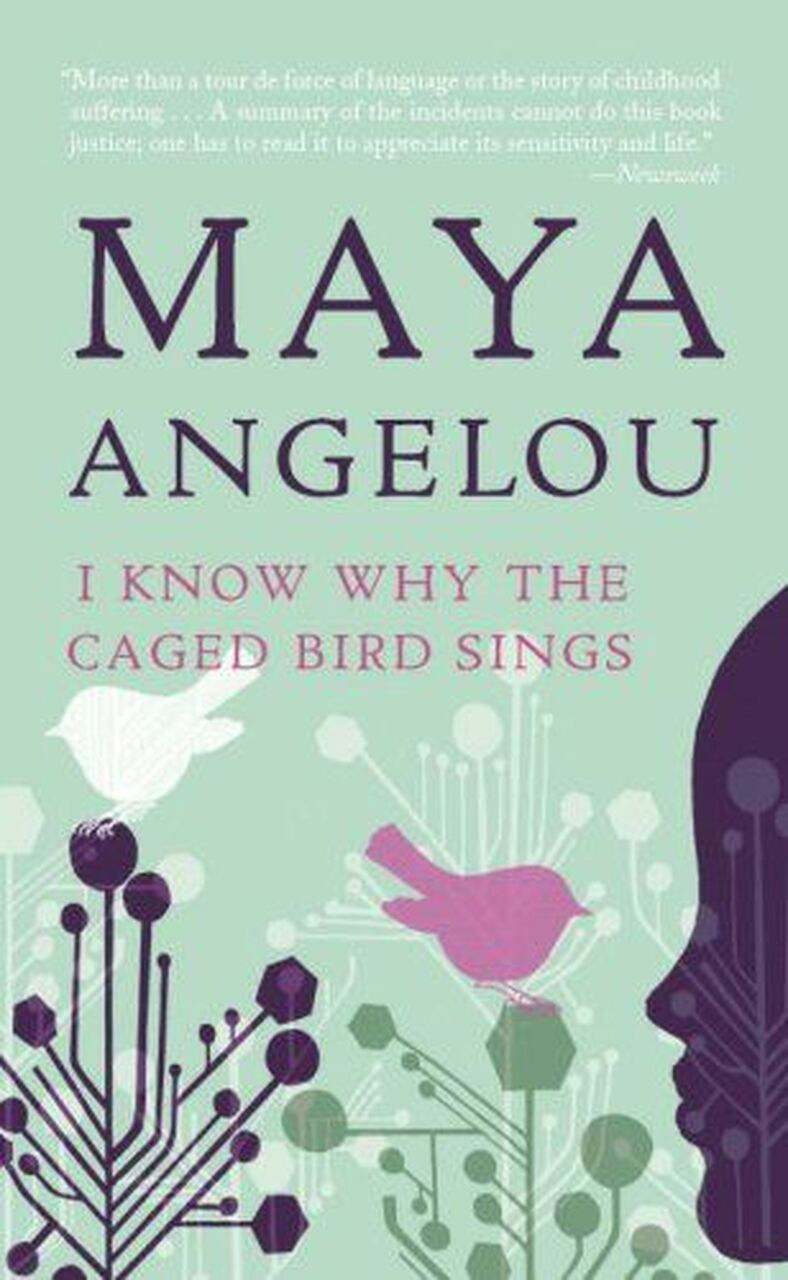
I Know Why the Caged Bird Sings
Maya Angelou
Another one of my favorites based on observation. I appreciate stories that really show that the writer pays attention to what is going on around them–maybe they don’t understand it, maybe they hate it–but either way they are paying attention. Maya Angelou is this kind of writer and I adore her for it. Her story of growing up in the south and the trauma she endures alone is simultaneously heartbreaking and hopeful. The title is powerful enough. Writing about trauma in such a linear way is an incredibly difficult thing to do. I celebrate how willing and able Angelou was in sharing her experience without any bias or emotional swaying.
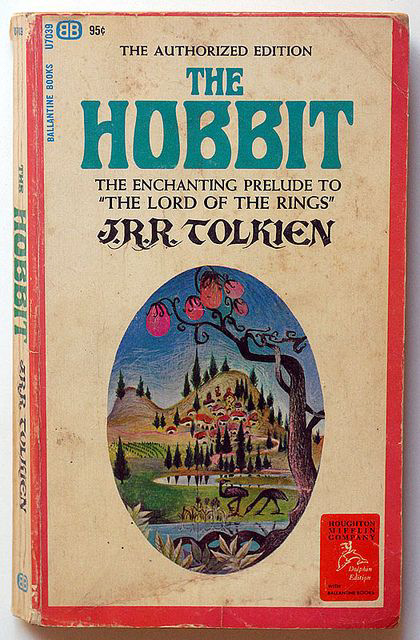
The Hobbit
J.R.R. Tolkein
I have to include this book. I’d say my favorite book is a tie between this and A Tree Grows in Brooklyn. I don’t need to explain what a brilliant writer Tolkein is. There’s a scene when they first venture into Mirkwood; the description of how dark and mysterious the forest is had me freaking out. A lot of people complain about how descriptive Tolkein is, but he did it so well. It amazes me. This is also where I discovered one of my favorite words, bildungsroman. It sounds so silly and medieval.
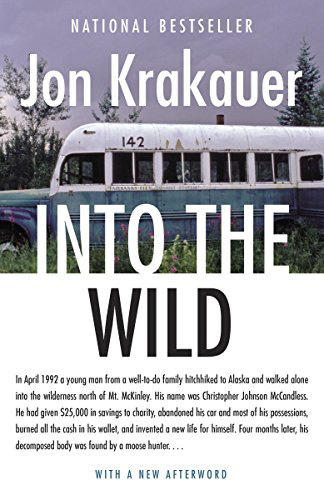
Into the Wild
Jon Krakauer
Almost everyone has heard of this guy’s story. Chris McCandless, aka Alex Supertramp. I had heard of the story, but only that. I had no idea there was a book or movie about him. The book is an incredible piece of journalism. Most people I have talked to about him just assume he ate the wrong thing, or died of starvation, or something like that, but the way he died is actually unknown. Most likely, it had to do with something he ate and lack of nutrition. The only account we have of his final days are what he wrote down, which wasn’t much. A lot of people assume he was just some stupid kid who went into the woods and didn’t know what he was doing. This is sort of the case, but it glosses over the completeness of this human, who was so over the expectations of society that he spent months roaming the country to make his own path. He faced challenges, and ultimately one of those challenges killed him, but I find him inspiring. The movie is obviously dramatized and missed a few important points, but the book is great. I can’t imagine spending that much time and energy on a specific story. Krakauer tracked down all kinds of different people that McCandless had met in his journey. McCandless went by a few different names on his journey, which made it even harder. I think it’s insane that someone was able to pull this guy’s story together, and once you read it it’s much harder to criticize him. One of the things he writes in his final days is that happiness is better when shared. Coming to that conclusion when you realize you are going to die alone in a matter of hours and no one is coming to save you… chilling.


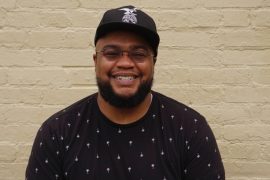


This is a great list, Cori! I’ve ready of the books on here, a long while ago, but it was fun to see someone else’s take on them. Thank you!